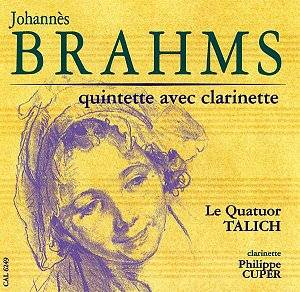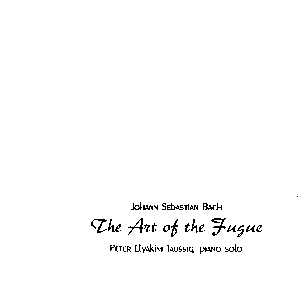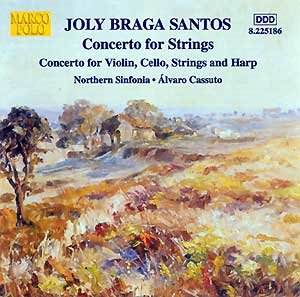 Composer: Wolfgang Amadeus Mozart
Composer: Wolfgang Amadeus Mozart
Works: Clarinet Quintet in A major, K. 581; Johannes Brahms, Clarinet Quintet in B minor, Op. 115
Performers: Philippe Cuper (clarinet), Talich Quartet
Recording: Live, 26 June 1996 at the Théâtre Impérial de Compiègne
Label: Calliope CAL 6249
Wolfgang Amadeus Mozart’s Clarinet Quintet in A major, K. 581, and Johannes Brahms’s Clarinet Quintet in B minor, Op. 115, are both monumental contributions to the chamber music repertoire, showcasing the clarinet’s lyrical qualities against a rich tapestry of string textures. Mozart composed his work in 1789 for the virtuoso clarinetist Anton Stadler, and it exhibits a seamless blend of elegance and structural finesse. Brahms, writing in a post-Romantic idiom, draws upon the lyrical and harmonic innovations of his predecessor, crafting a piece that radiates a profound sense of introspection and emotional depth.
Philippe Cuper’s performance with the Talich Quartet reveals a thoughtful interpretation of Mozart’s quintet. The clarity in the clarinet’s opening phrases sets a tone of buoyancy, with a delightful interaction between the soloist and the strings that highlights the work’s conversational nature. The first movement’s brisk tempo and pointed accents are executed with precision, particularly the clarinet’s arpeggiated entry, which Cuper articulates with a delectable lightness that complements the hymn-like quality of the strings. Noteworthy is the subtlety demonstrated in the development section; the f-p accenting around 6:20 is a testament to the performers’ acute sensitivity to the score’s dynamic intricacies.
The slow movement, Larghetto, is imbued with a sense of grace, with Cuper’s intonation exuding a warmth that captures the lyrical essence of the music. While one might yearn for a touch more vigor in the Menuetto, the leisurely pace fosters a reflective atmosphere, allowing the first violinist, Petr Messiereur, to weave an exquisite line, responsive to the clarinet’s gentle call. The Finale, though perhaps on the slower side, is notable for its crisp thematic statements, especially in the adagio variation, where Cuper’s phrasing shines with an emotional depth that resonates well with the listener.
Transitioning to Brahms, Cuper and the Talich Quartet embrace the work’s rich, autumnal character with a performance that feels both elegiac and reflective. The opening measures, with the clarinet’s rising arpeggio echoed by the strings, create a sonorous blend that resonates deeply. The Adagio, often considered the heart of the quintet, is particularly well realized here, with Cuper exploring its improvisatory qualities that reveal Brahms’s lyrical genius. The ensemble’s adeptness at navigating the syncopations of the Andantino third movement brings a sense of playfulness, while the Con Moto finale, despite lacking a hint of gypsy fire, maintains a pacing that feels organically conceived, culminating in a satisfying resolution.
Recording quality, while initially feeling somewhat constricted and dry, ultimately allows for an intimacy that is often desired in chamber music. The close balance brings the audience almost into the performance space, though this proximity does highlight the occasional extraneous sounds, such as the leader’s audible breaths. However, these nuances do not detract from the overall musical experience, which is enriched by the presence of live audience applause that reinforces the immediacy of the performance.
This recording stands out for its sunny disposition and relaxed interpretation of both works, appealing to listeners who appreciate a more genial approach to chamber music. Cuper and the Talich Quartet have crafted an engaging dialogue between the two composers, illuminating connections that resonate beyond the surface. The historical context of both quintets is respected while allowing for an interpretation that feels fresh and alive. A compelling addition to the catalogue, this performance is recommended for those who seek a thoughtful and well-executed exploration of these clarinet masterpieces.



